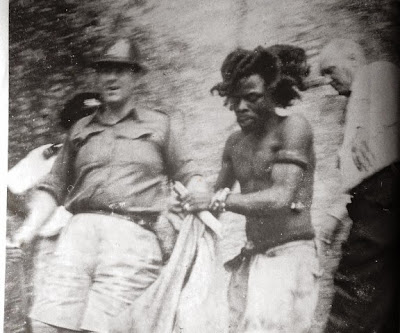Historical Perspectives
South Sudan, the world’s youngest nation, was born on July 9, 2011, out
of Sudan. She is now nearly four years old. Uganda was granted independence by
Britain on October 9, 1962. She is nearly 53 years old. The GDP (purchasing
power parity) of South Sudan is $23.3bn while that of Uganda, almost 50 years
older than South Sudan, is only $66.7bn, by the 2014 CIA estimates.
 |
| Uganda's President Yoweri K. Museveni |
Singapore, Malysia and South Korea are examples economists now and again cite
to put Uganda’s dismal economic performance into perspective. Those countries
were comparatively at the same level of development with Uganda in the 1960s
but Uganda has lagged behind to the extent that it seems obscene to compare it
to any of them. For example, while Uganda’s GDP is just over $66bn, that of South
Korea is $1.8 trillion.
Political instability and poor economic management over the years have
been pointed out as key deterrents to Uganda’s growth. But why political
instability? And why poor economic management?
History
shows us clearly that Uganda was founded on wrong ideologies. Fifty years
later, unfortunately, we still follow the very ideologies and expect positive
results. We strongly rely on tribal and religious sentiments when choosing our
leaders, and our leaders follow the same when selecting individuals for key government
positions – what is popularly referred to as “sharing the national cake.” Every
time the President appoints ministers, even newspapers are quick to point out
which tribe has received the biggest number, and therefore the biggest share of
the national cake, and which religion has received the fewest. All this has its
roots in our history:
Excerpt from Uganda: The Rise and Fall of Idi Amin (Compiled and Edited from
Drum Magazine by Adam Seftel):
Uganda’s passage to independence
was hampered by lack of national unity. Provincialism, threats of separatism,
and the absence of a countrywide national movement inhibited Britain’s attempts
to forge a united independent Uganda. The first nominally national party was
the Uganda National Congress (UNC) formed in 1952 by Ignatius Musaazi. It was
the first party to demand self-government from the colonial administration.
However, the leadership of the UNC was of Buganda and although the party
attempted to open branches in other parts of the country, it never became a
mass nationalist movement. In 1959 the UNC was split into two factions, one of
which was led by Apollo Milton Obote.
In 1954 the Democratic Party (DP) was
formed. The main objective of the DP was to promote the political interests of
the Roman Catholic community in Uganda. The DP did manage to become a national
party, and at independence it was one of Uganda’s most important parties. In
1960 Obote’s faction of the UNC merged with a non-Baganda movement, the Uganda
Peoples’ Union, to form the Uganda People’s Congress (UPC) under Obote’s
leadership. The UPC aspired to be a genuine national party, but in practice it
drew its support from the Protestant and Muslim communities.
Our country is rooted in factionalism, rather than collectivism; in sentiments,
rather than practical ideologies; in emotions, rather than logic. In 1994 Uganda
had 39 districts. Now we have 111 plus Kampala which is a city. Although more
and more districts have been created on the pretext of “bringing services
closer to the people”, in practice it is sections pulling away from the whole
for selfish gains of some individuals. In his paper, Patronage, District Creation and Reform in Uganda, Elliott Green
argues that “the recent creation of new districts in Uganda can primarily be
explained by the need for President Museveni’s government to create political
patronage. The new districts, Elliott says, have helped Museveni to continue to
win elections.
Considering what is on the ground, with crippled educations services,
poor health service delivery, and a failing rural agricultural economy, there
is little evidence that the creation of new districts has improved social
service delivery in Uganda. It has, instead, created new political jobs,
increasing the wedge burden of a struggling national economy. At the local
level, depletion of natural resources such as forests has increased as power
wielding individuals down on them to quench their financial thirst.
With this kind of factionalism,
working exactly in the opposite of national building, it is not surprising that
Uganda is stunted.
If
Uganda has to develop, all tendencies of factionalism, most importantly, discriminative
ideologies such as religion and tribe, must be taken out of Uganda’s politics. After
50 years of following what doesn’t work, we have no choice but to establish a new
system simply based on human dignity.












